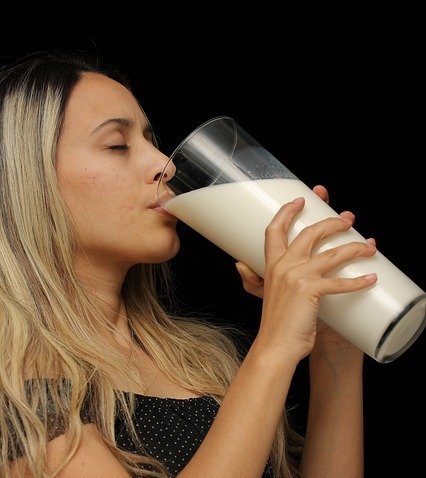As children, we are encouraged to drink milk so we can “grow up big and strong.” But what happens to our desire to drink milk when we’re all grown up? While most adults recognize the nutritional value of milk and dairy foods when it comes to calcium and bone health benefits, fewer of us make milk the mealtime choice. So, where’s the disconnect? And should we, as adults, still drink milk?
Milk, as we’ve heard over and over, is a good source of calcium, as well as protein and other nutrients like vitamin D and potassium. Its main champion? The federal government. As early as the 1940s, milk was touted as a guaranteed path to strength, health and happiness.
When people can't digest milk, we call them lactose intolerant. This seems to signify that it's an unusual condition — that most people are just fine with milk, cheese and ice cream, and that lactose intolerance is something that needs to be fixed or helped. But it turns out that those poor souls who get gassy, crampy and otherwise digestively miserable after eating dairy products are actually in the majority worldwide. It's the people who can handle milk who are the weird ones. Some people, however, carry a genetic mutation that allows the lactase gene to keep working. Sometimes it continues for just a few more years, sometimes for a lifetime. Milk also might not seem like an essential part of diets if rates of lactose intolerance are considered. According to a 2017 estimate, approximately 36 percent of Americans can’t digest lactose, a sugar found in dairy products. Not everyone will experience the full range of symptoms, but lactose intolerance often causes bloating, discomfort, and stomach pain. Scientists aren't sure why some people lose the lactase gene, but they have figured out that the genetic mutation appeared about 7,500 years ago among dairy-farming populations in Central Europe.
According to a recent review from Ludwig and Harvard University endocrinologist Walter Willett in the New England Journal of Medicine, milk may not be the magic bullet for strong bones as once thought. In fact, countries that tend to consume the highest amounts of milk and calcium also have the highest rates of hip fractures. This doesn’t necessarily mean that the milk caused their fractures, but the fact that many low-dairy populations do not suffer from high rates of fracture might help put milk consumption in perspective.
Source: discovermagazine.com, howstuffworks.com
